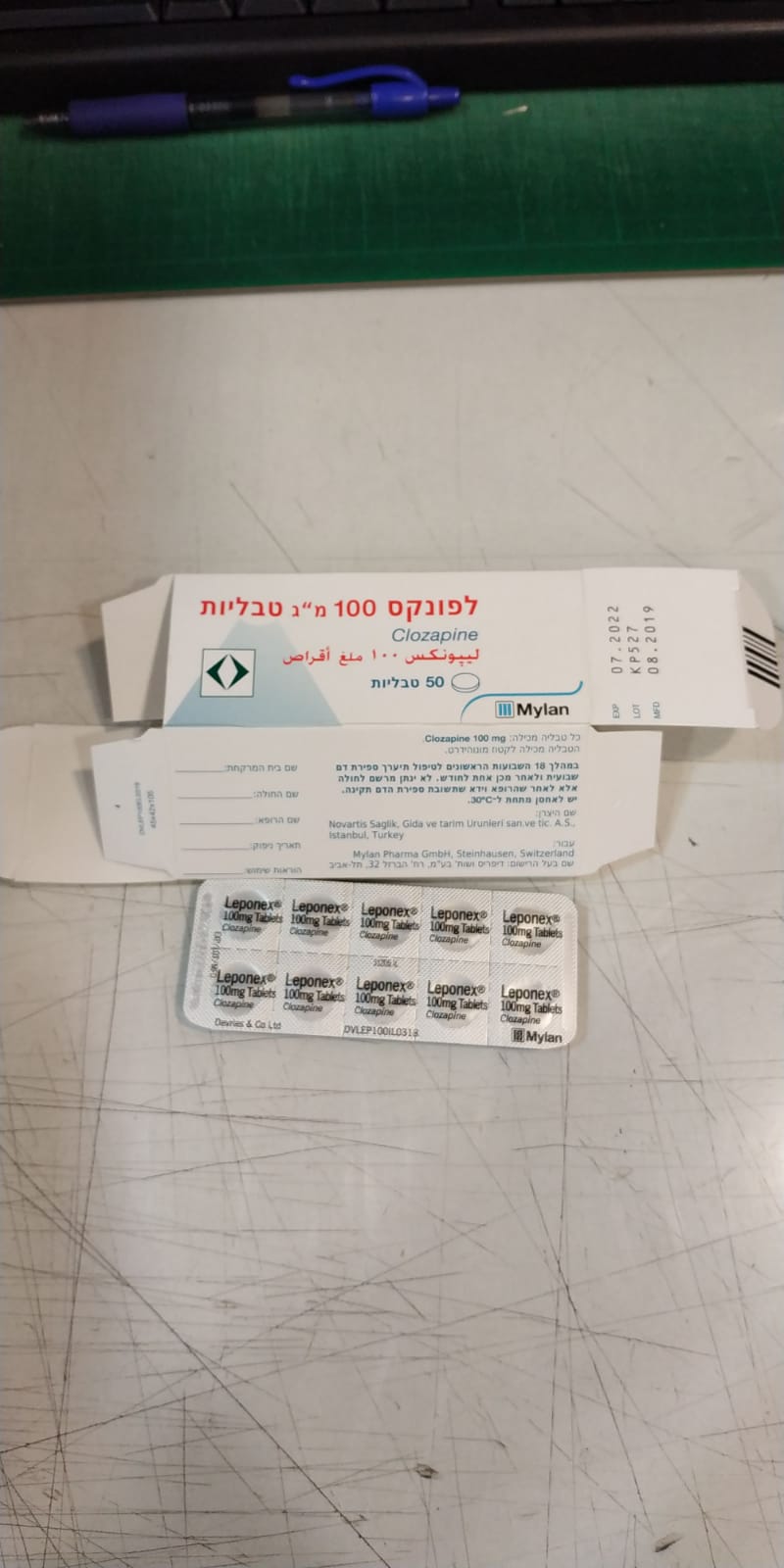Quest for the right Drug

לפונקס 100 מ"ג טבליות LEPONEX 100 MG TABLETS (CLOZAPINE)
תרופה במרשם
תרופה בסל
נרקוטיקה
ציטוטוקסיקה
צורת מתן:
פומי : PER OS
צורת מינון:
טבליה : TABLETS
עלון לרופא
מינוניםPosology התוויות
Indications תופעות לוואי
Adverse reactions התוויות נגד
Contraindications אינטראקציות
Interactions מינון יתר
Overdose הריון/הנקה
Pregnancy & Lactation אוכלוסיות מיוחדות
Special populations תכונות פרמקולוגיות
Pharmacological properties מידע רוקחי
Pharmaceutical particulars אזהרת שימוש
Special Warning עלון לרופא
Physicians Leaflet
Overdose : מינון יתר
4.9 Overdose Massive overdose, whether accidental or with suicidal intent, represents a serious danger to the patient. In cases of acute intentional or accidental Leponex overdose for which information on the outcome is available, mortality to date is approx. 12%. Most of the fatalities were associated with heart failure or aspiration pneumonia and occurred at doses above 2,000 mg. There have been reports of patients recovering from an overdose in excess of 10,000 mg. However, in a few adults, primarily those not previously exposed to Leponex, the ingestion of doses as low as 400 mg led to life-threatening comatose conditions and, in one case, to death. In young children, the ingestion of 50 to 200 mg resulted in strong sedation or coma, without being lethal. Signs and symptoms Drowsiness, lethargy, coma, areflexia; confusion, hallucinations, agitation, delirium; extrapyramidal symptoms, hyperreflexia, convulsions; hypersalivation, mydriasis, thermolability (possibility of extreme hypothermia); hypotension, collapse, tachycardia, cardiac arrhythmia (in particular, AV block and extrasystoles), impaired cardiac conduction; aspiration pneumonia, dyspnoea, respiratory depression or respiratory failure. Treatment No specific antidote is known. The following non-specific measures are indicated: Immediate and repeated gastric lavage followed by administration of activated charcoal within six hours of ingestion. Peritoneal dialysis and haemodialysis are unlikely to be effective. Cardiorespiratory intensive care (ECG, continuous monitoring). Continuous monitoring of electrolyte and acid-base balance. Peritoneal dialysis or haemodialysis in the event of oliguria or anuria (although this will not significantly increase the rate of elimination in view of the drug’s high protein binding). Some symptoms may respond to medical treatment, as follows: • Anticholinergic effects: The parasympathomimetic agents physostigmine (crosses blood-brain barrier), pyridostigmine or neostigmine. • Arrhythmia: Potassium, sodium bicarbonate or digitalis, depending on the symptoms; quinidine and procainamide are contraindicated. • Hypotension: Infusion of albumin or plasma expanders. Dopamine and angiotensin are the most effective circulatory stimulants. Contraindicated: Adrenaline and other beta- sympathomimetics are contraindicated (may increase additional vasodilation). • Convulsions: Diazepam i.v. or phenytoin slow i.v. long-acting barbiturates are contraindicated. The patient should be monitored for at least 5 days because of the possibility of delayed reactions.

שימוש לפי פנקס קופ''ח כללית 1994
Schizophrenia in patients unresponsive to or intolerant of conventional antipsychotic drugs. התרופה תימצא רק בבתי חולים ותנופק לחולים אמבולטורים רק באמצעותם
תאריך הכללה מקורי בסל
01/01/1995
הגבלות
תרופה אשפוזית לפי החלטת משרד הבריאות
מידע נוסף
